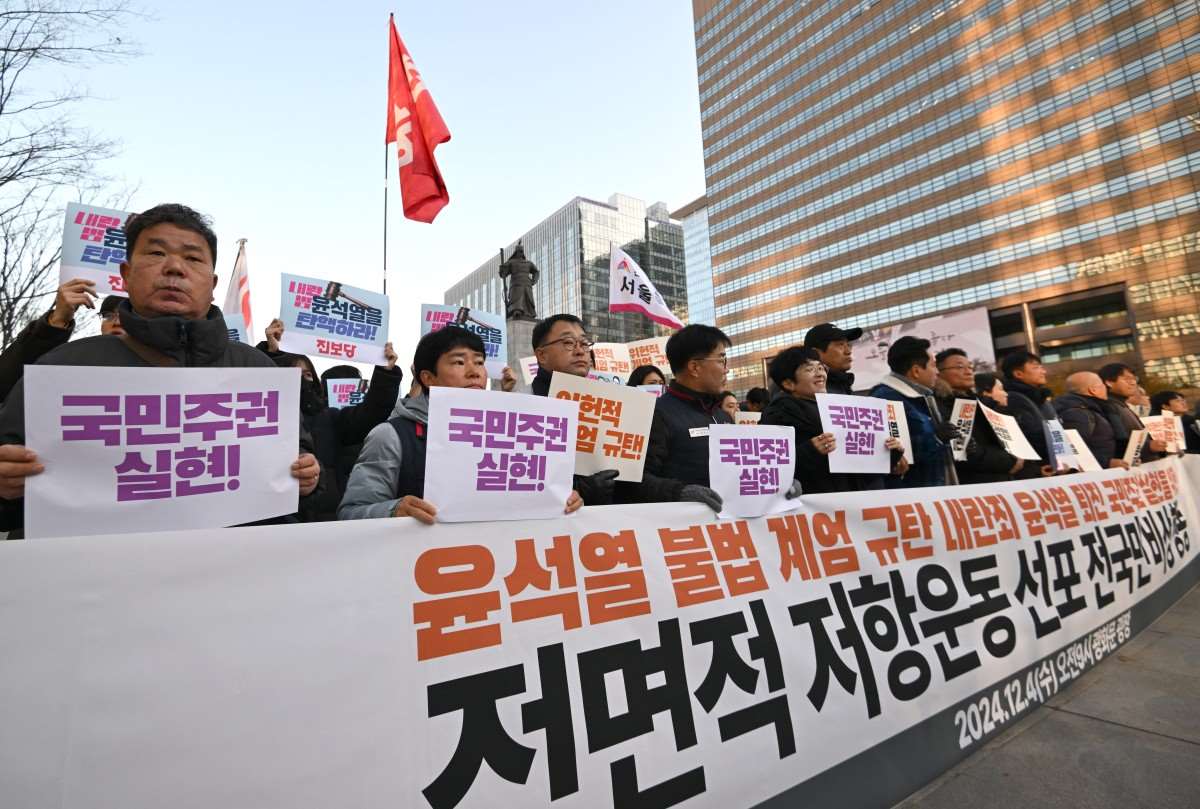On the night of December 3, President Yoon Suk Yeol suddenly declared martial law because he believed that the opposition party in the National Assembly and pro-North Korean forces were plotting to overthrow the legitimate government, threatening South Korea's democracy.
However, this decision has met with strong opposition from many sides. The South Korean National Assembly quickly held an emergency meeting and voted to reject the martial law, arguing that this decision was unconstitutional and caused political instability. The South Korean people were confused and worried about the unstable situation. Many people took to the streets to protest the President's decision.
Just six hours later, President Yoon Suk Yeol's Cabinet approved the end of martial law at 4:30 a.m. local time.
A coalition of lawmakers from opposition parties said it plans to propose a bill to impeach President Yoon Suk Yeol on December 4 and the bill will be voted on within 72 hours, Reuters reported.
"The National Assembly should focus on immediately suspending the president's activities to pass the impeachment bill as soon as possible," Hwang Un-ha, one of the lawmakers in the coalition, told reporters.
A presidential office official said Mr Yoon's chief of staff and senior secretaries had offered to resign en masse.

The main opposition Democratic Party called on President Yoon Suk Yeol, who will hold office from 2022, to resign or face impeachment over declaring martial law - the first such move in South Korea since 1980.
"Even if martial law is lifted, he cannot escape charges of treason. It is clear that the entire nation has realized that President Yoon can no longer run the country normally. He should resign," Park Chan-dae, a senior member of the Democratic Party's parliament, said in a statement.
The National Assembly can impeach the president if more than two-thirds of lawmakers vote in favor. The case would then be heard by the constitutional court, which can confirm it by a vote of six of its nine judges.
President Yoon Suk Yeol's party controls 108 seats in the 300-member parliament.
If President Yoon Suk Yeol resigns or is removed from office, Prime Minister Han Duck-soo would take over as leader until a new election is held.
Yoon Suk Yeol, a career prosecutor, won the closest presidential election in South Korea's history in 2022, overcoming a wave of discontent over economic policy, scandals and gender wars.
But he was unpopular, with approval ratings hovering around 20% for months.
His People Power Party suffered a defeat in parliamentary elections in April this year, ceding control of the unicameral parliament to opposition parties that held nearly two-thirds of the seats.
There have been more than a dozen instances of martial law declared since the Republic of Korea was founded in 1948.
In 1980, a group of military officers led by Chun Doo-hwan forced then-President Choi Kyu-hah to declare martial law to quell calls from the opposition, labor, and students for the restoration of democratic government.









